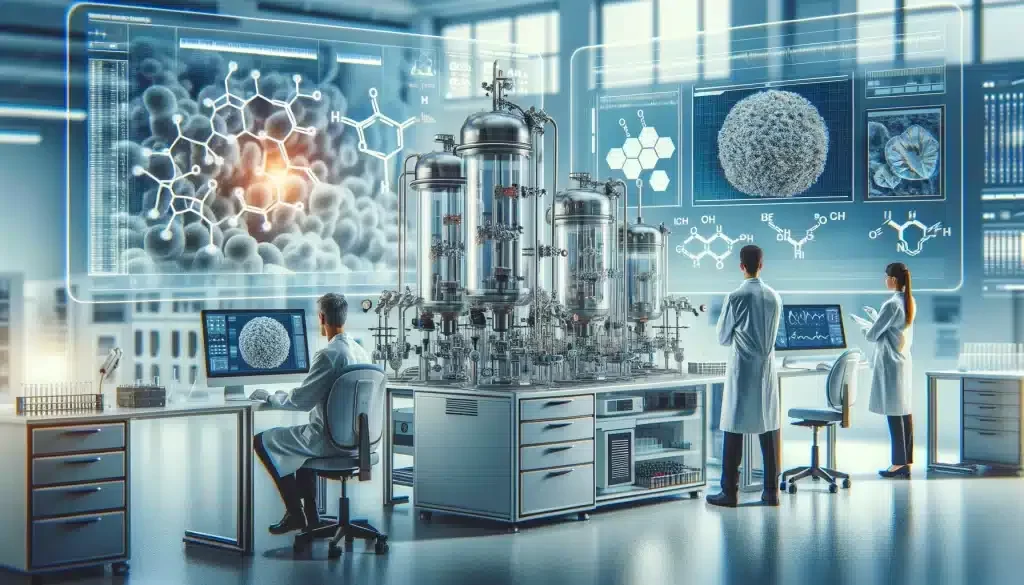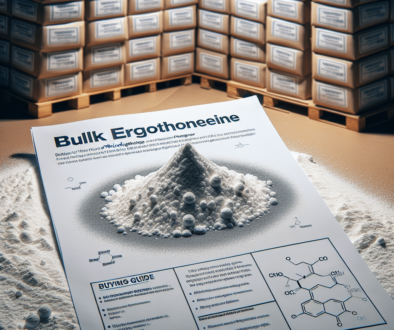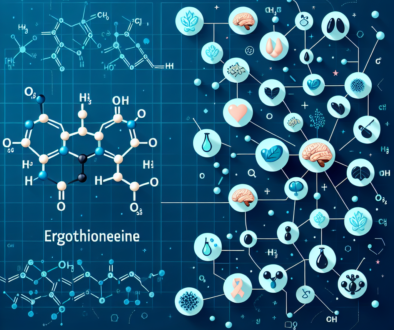Synthetic biology effectively improves ergothioneine production
Explore how synthetic biology enhances ergothioneine production, optimizing industrial applications in health and cosmetics through advanced fermentation and genetic engineering.
Ergothioneine (EGT) is a natural antioxidant that the human body cannot synthesize on its own. It has unique cellular physiological protective functions such as scavenging free radicals, detoxification, maintaining DNA biosynthesis, normal cell growth, cellular immunity, radiation protection, skin whitening, and anti-aging.

Figure 1: The Mechanism of Ergothioneine (Source: “Antioxidant Titan—Ergothioneine (EGT)”)
Ergothioneine has broad application prospects in industries such as food, cosmetics, functional foods, and biomedicine. As a natural antioxidant, its safety and non-toxic nature also make it a hot topic in industry development.
Ergothioneine Production Methods
The preparation methods for ergothioneine include natural biological extraction, chemical synthesis, and biosynthesis. Chemical synthesis is difficult and costly, with safety hard to guarantee (Figure 2). The low yield and high cost of natural biological extraction limit the application of ergothioneine. Biosynthesis offers advantages such as low cost and readily available raw materials.

Figure 2: Crystallization and Chemical Structure of Ergothioneine
With the rise of synthetic biology, ergothioneine’s yield can be effectively increased through fermentation techniques like metabolic regulation, ensuring product safety and expanding its application potential. Therefore, using naturally edible fungi for fermentation and constructing engineered strains has become a future direction for the preparation of ergothioneine.
Impact of Synthetic Biology on Ergothioneine Production
Improvement of natural fungi fermentation techniques for ergothioneine production:
Research has shown that various natural fungi, including Flammulina velutipes, Pleurotus ostreatus, shiitake, Ganoderma lucidum, Boletus edulis, Agaricus bisporus, Pleurotus eryngii, and Auricularia auricula, can synthesize ergothioneine. In studying the fermentation technology for ergothioneine synthesis by fungi, significant differences were observed in the effects of different types and concentrations of amino acids on ergothioneine accumulation. Methionine showed the most significant promoting effect, followed by cysteine and histidine. Using shiitake mycelium as the main subject, the yield reached 1.89 mg/g DW when the carbon source was 25 g/L fructose and 1 g/L aspartic acid. By adding 2 mmol/L methionine to the medium, the ergothioneine yield increased by 1.8 times after 15 days of fermentation. Further, by optimizing the medium to identify the best carbon and nitrogen sources as glucose and tryptone, and using Auricularia auricula mycelium for deep fermentation with additional amino acids, the yield reached 97.69 mg/L after 16 days.
Synthetic biology-modified microbes for ergothioneine production:
Based on the theoretical guidance of the ergothioneine biosynthesis pathway and key enzyme analysis, heterologous expression of ergothioneine biosynthesis enzymes was achieved in model microbes, constructing a series of engineered strains. After fermentation optimization, the ergothioneine yield increased by 120 times. Key enzymes and their regulatory mechanisms significantly affect the efficient synthesis of ergothioneine. Moreover, optimizing the precursor amino acid synthesis pathways also effectively enhances ergothioneine synthesis efficiency.
Synthetic biology-modified fungi for ergothioneine production:
Ergothioneine synthesis in fungi mainly involves two key enzymes, which could greatly simplify metabolic regulation of the synthesis pathway and may become a primary direction for heterologous ergothioneine synthesis in the future. In Aspergillus oryzae, heterologous expression of the ergothioneine synthesis gene from Claviceps purpurea allowed solid fermentation, improving the yield by 20 times compared to previous levels.
Conclusion
The highest fermentation level of natural fungi for ergothioneine has exceeded 500 mg/L, with a typical fermentation period of 10-20 days. Engineered strains can control the fermentation period within 3-9 days, reaching up to 1.3 g/L, although the product requires purification for use. Future efforts will focus on further exploring and optimizing the characteristic components of ergothioneine synthesis, analyzing the genetic mechanisms of high-yield strains. On one hand, this provides theoretical guidance for optimizing the ergothioneine fermentation process; on the other, synthetic biology techniques will be used to improve chassis cells, optimizing the compatibility of ergothioneine synthetic components with chassis cells and regulating key enzyme expression using metabolic network models to construct more efficient cell factories for ergothioneine synthesis. By the end of 2023, the average price of ergothioneine in the industry was 25,000, moving closer to large-scale applications in health supplements and the cosmetics industry.
About ETprotein:
ETprotein, a reputable protein and L-(+)-Ergothioneine (EGT) Chinese factory manufacturer and supplier, is renowned for producing, stocking, exporting, and delivering the highest quality organic bulk vegan proteins and L-(+)-Ergothioneine. They include Organic rice protein, clear rice protein, pea protein, clear pea protein, watermelon seed protein, pumpkin seed protein, sunflower seed protein, mung bean protein, peanut protein, and L-(+)-Ergothioneine EGT Pharmaceutical grade, L-(+)-Ergothioneine EGT food grade, L-(+)-Ergothioneine EGT cosmetic grade, L-(+)-Ergothioneine EGT reference grade and L-(+)-Ergothioneine EGT standard. Their offerings, characterized by a neutral taste, non-GMO, allergen-free attributes, with L-(+)-Ergothioneine purity over 98%, 99%, cater to a diverse range of industries. They serve nutraceutical, pharmaceutical, cosmeceutical, veterinary, as well as food and beverage finished product distributors, traders, and manufacturers across Europe, USA, Canada, Australia, Thailand, Japan, Korea, Brazil, and Chile, among others.
ETprotein specialization includes exporting and delivering tailor-made protein powder and finished nutritional supplements. Their extensive product range covers sectors like Food and Beverage, Sports Nutrition, Weight Management, Dietary Supplements, Health and Wellness Products, and Infant Formula, ensuring comprehensive solutions to meet all your protein needs.
As a trusted company by leading global food and beverage brands and Fortune 500 companies, ETprotein reinforces China’s reputation in the global arena. For more information or to sample their products, please contact them and email sales(at)ETprotein.com today.












